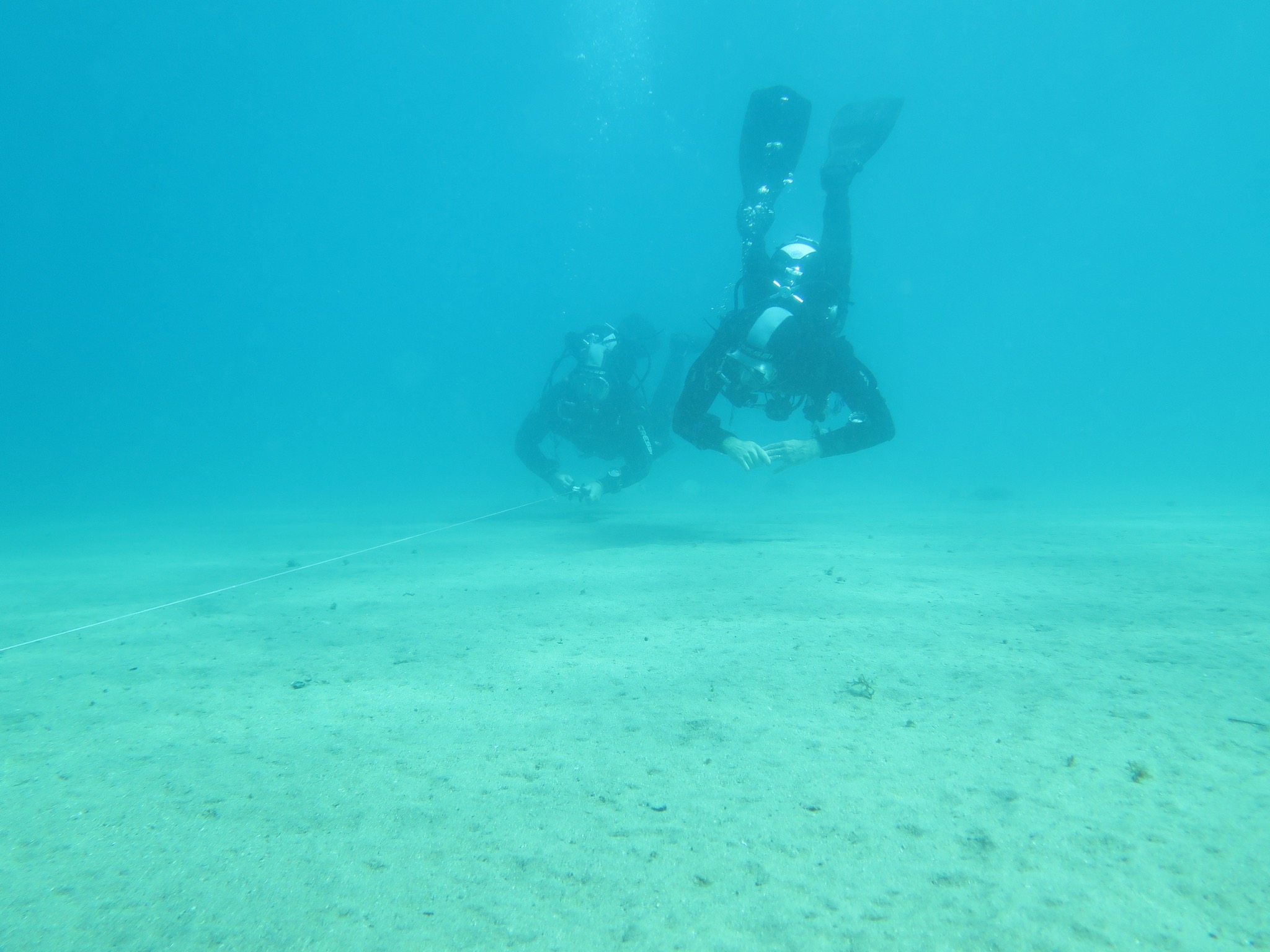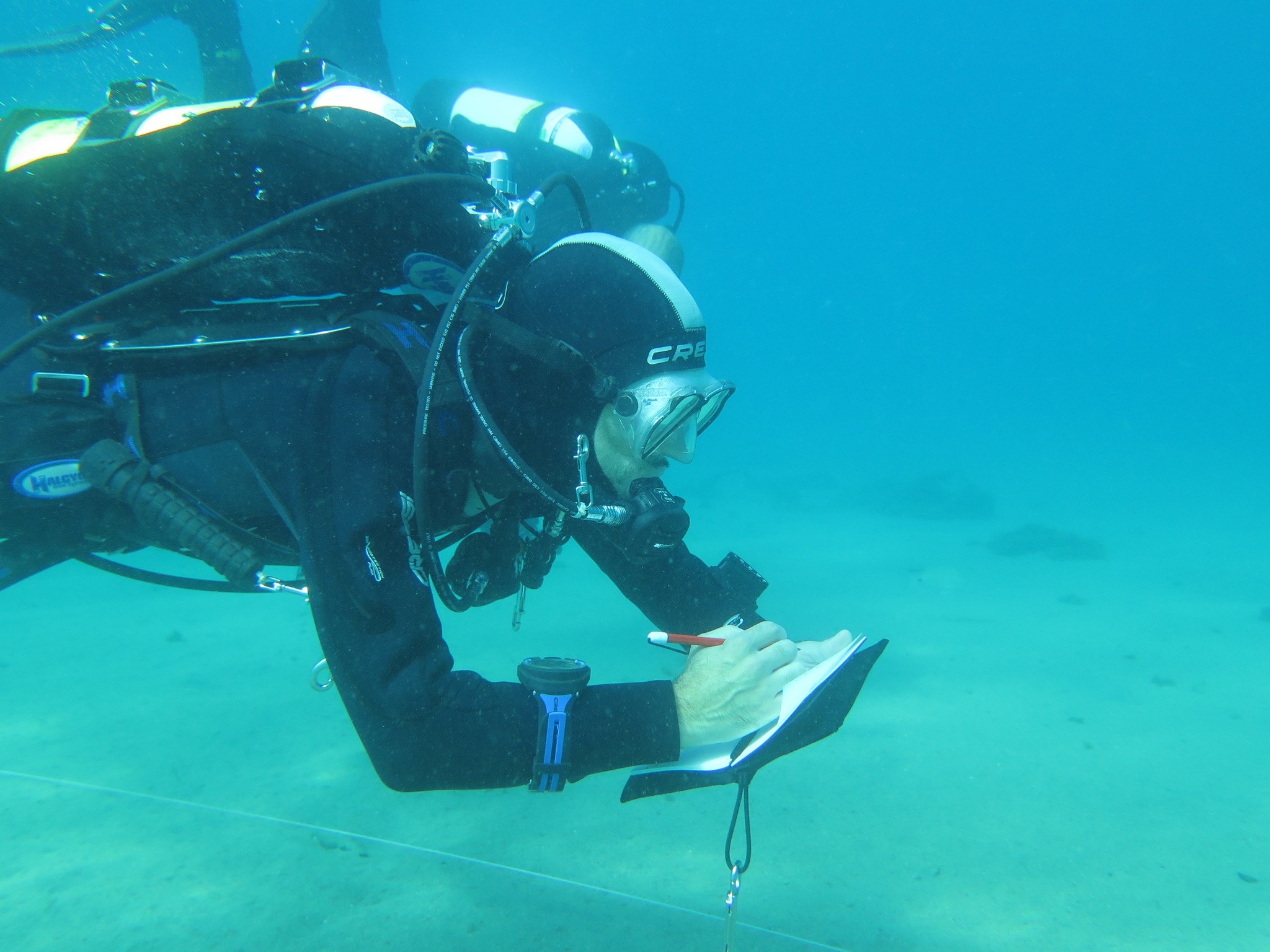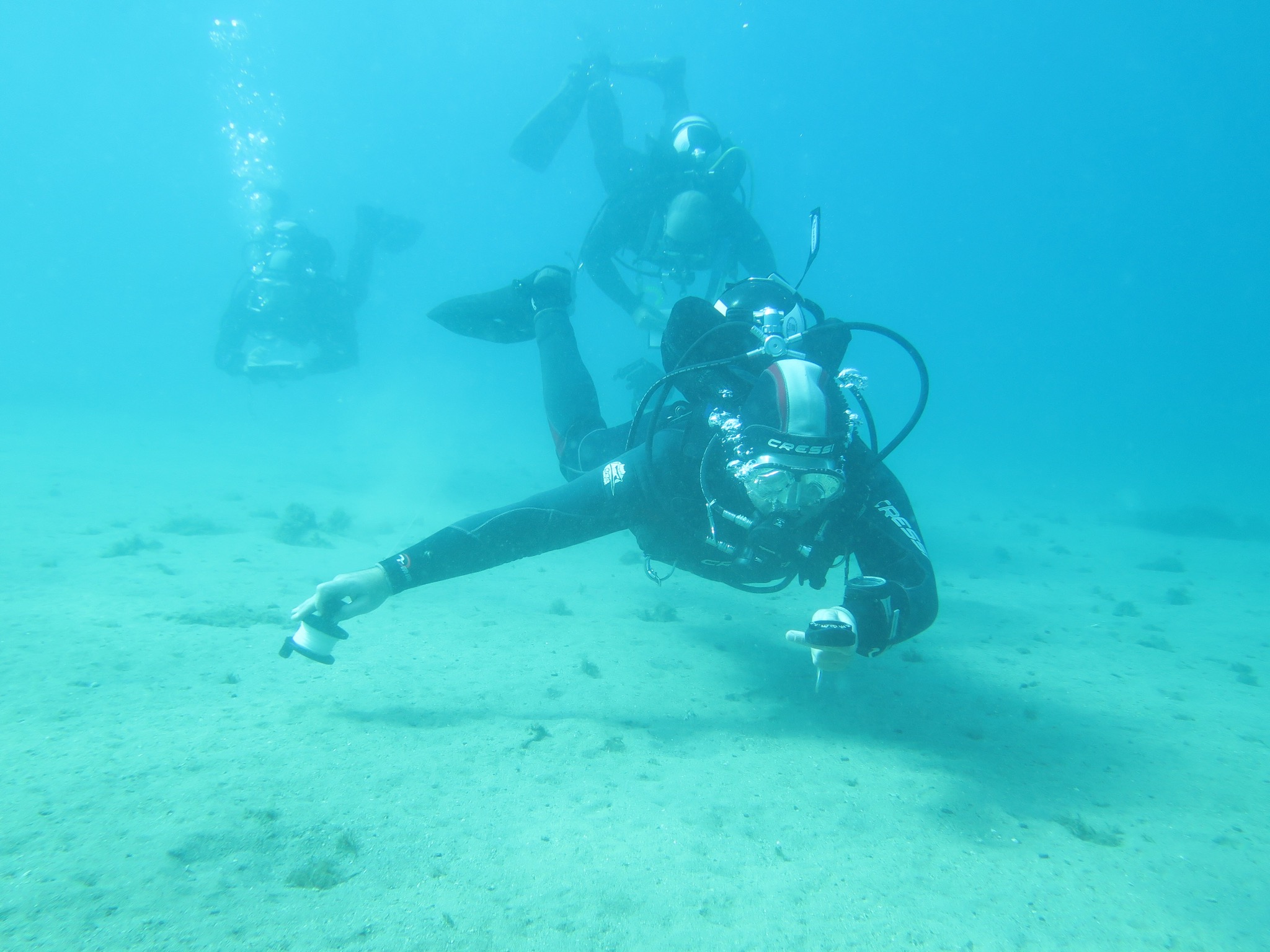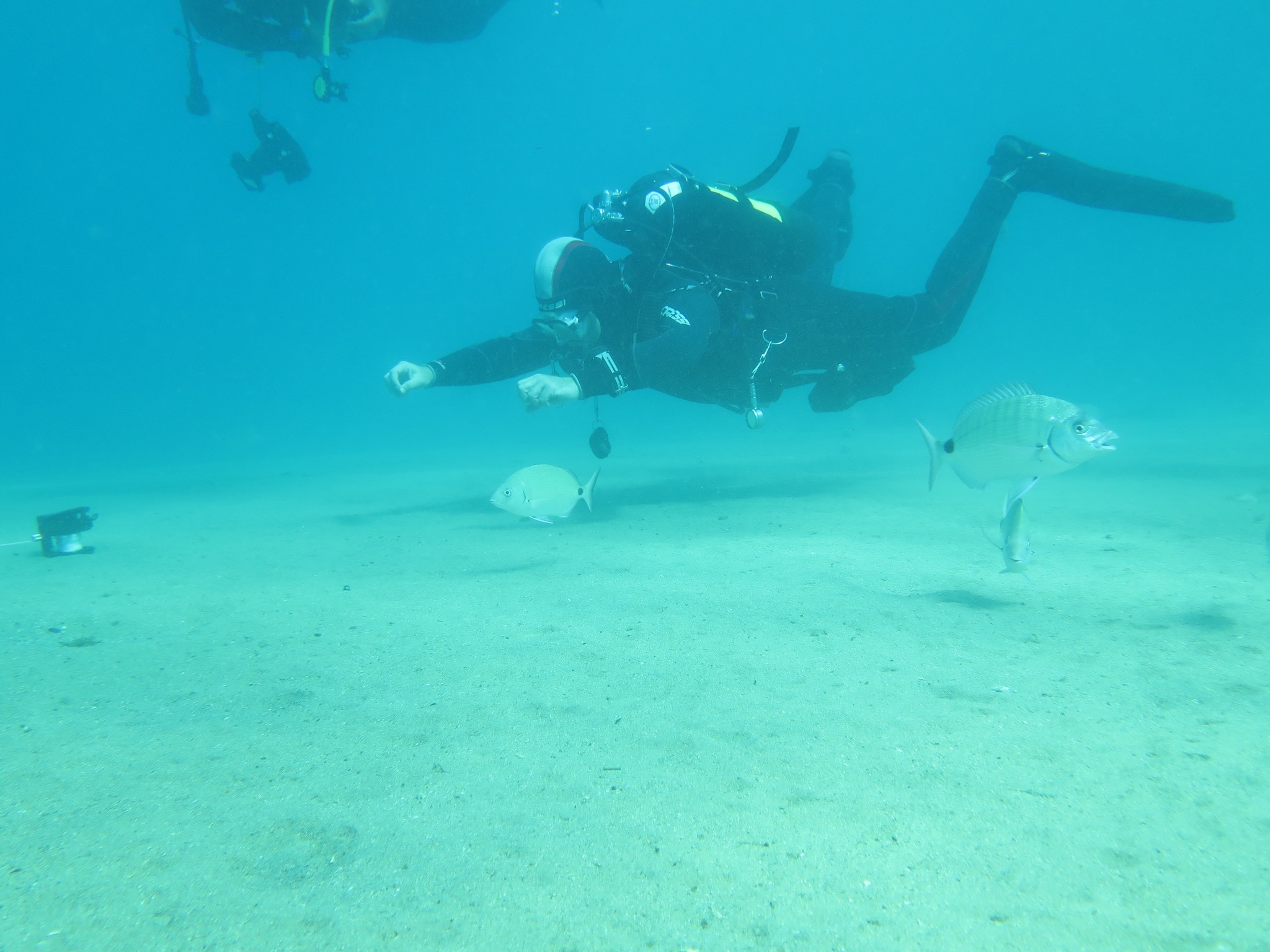Two Divers from the Department of the Environment and Climate Change have recently qualified as Scientific Divers.
This qualification follows from a Global Underwater Explorers course undertaken last year whereby the Department’s divers became proficient in dive planning, buoyancy control, trim, team awareness, gas management and decompression and took them into technical diving.
Clive Crisp (Head of the Dive Team) and Karl Netto undertook a rigorous week long course with the University of Algarve’s Centre of Marine Sciences. The University’s Scientific Diving Instructor Diogo Paulo delivered the training. The Scientific Divers have attained a diploma from the University of Algarve’s Centre of Marine Sciences.
New methods and skills were learned and refined on scientific data acquisition, project planning, data management and diver safety. The underwater sciences taught under this course included biology, archaeology and geology.
The course covered a wide array of topics including:
- Site marking and assessment with navigation and line survey techniques;
- Data management and drafting of maps whilst underwater, archiving data and producing site and survey reports;
- Methodologies: including site sketches, marking and measuring, laying baselines and transects, the use of quadrants and photo quadrants, creating photomosaic, video census, offset measurements, trilateration, density cover, creating grids underwater with the use of spools, using airlifts and liftbags.
The Department’s Dive Team continue to monitor our underwater environment throughout British Gibraltar Territorial Waters and are already putting new their skills into practice for the benefit of nature conservation.
Minister for the Environment and Climate Change, Dr John Cortes, stated: “We have made huge strides in improving and protecting our marine environment, and in equipping our team for more and better science. This is a tremendous achievement that would have been undreamt of just a few years ago. The collaboration with the University of Algarve, a leader in marine science, is also particularly satisfying.”



